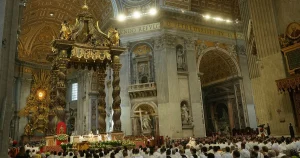Sven-Göran Eriksson, the legendary football manager affectionately known as ”Svennis,” led a life punctuated by both remarkable triumphs on the pitch and significant financial struggles off it. His recent passing has revealed a complex financial legacy, with a stark contrast between his impressive career achievements and a substantial debt burden. While his estate boasts valuable assets reflecting his illustrious career, including a Serie A gold medal and a bespoke England national team suit, his liabilities significantly outweigh these possessions. The juxtaposition of these two contrasting realities offers a poignant insight into the later years of a man who captivated the footballing world.
Eriksson’s career trajectory saw him ascend to the highest echelons of football management, accumulating a wealth of experience and accolades along the way. From leading IFK Göteborg to back-to-back UEFA Cup triumphs to guiding Lazio to a Serie A title, his tactical acumen and leadership abilities earned him widespread recognition. His appointment as England manager further solidified his standing within the global football landscape, becoming the first foreign manager to hold the prestigious position. However, his tenure as England manager, though marked by periods of promise, ultimately ended without achieving the coveted international trophy the nation craved.
Despite the outward appearances of success, the recent disclosure of Eriksson’s financial situation paints a different picture. Upon his death from pancreatic cancer on August 26th, 2024, his estate revealed a staggering debt of nearly 118 million kronor, significantly eclipsing his total assets of around 66 million kronor. The bulk of this substantial debt comprises unpaid taxes, raising questions about the financial management decisions made during his later years. This revelation adds a layer of complexity to Eriksson’s legacy, illustrating that even the most successful individuals can face significant personal challenges.
The auctioning of Eriksson’s personal effects, including items of significant sentimental and historical value, provides a tangible link to his storied career. Among the items slated for sale are tangible reminders of his greatest achievements: the gold medal commemorating Lazio’s Serie A triumph and the Armani suit meticulously embroidered with the England crest. The suit, in particular, carries a unique historical significance, containing handwritten notes from Eriksson’s tactical preparations for England’s Round of 16 clash against Ecuador in the 2006 World Cup. These artifacts offer a glimpse into the mind of a master tactician and symbolize the pressure and intensity that accompany managing on the world stage.
The auctioning of these items, while financially necessary to address the substantial debt, is also deeply symbolic. It represents the closing of a chapter on a remarkable career, a public dispersal of the tangible remnants of a life dedicated to the beautiful game. While the financial challenges he faced cast a shadow on his legacy, the sale of these items also provides an opportunity for fans and collectors to acquire a piece of footballing history, ensuring that Eriksson’s contributions to the sport are not forgotten.
Eriksson’s story serves as a poignant reminder that success, even at the highest levels, doesn’t always equate to financial stability. His legacy is a complex tapestry woven from both triumphant victories and personal struggles. While the substantial debt he left behind raises questions about his financial decisions, it does not diminish the impact he had on the world of football. He will be remembered for his tactical innovations, his calm demeanor under pressure, and his unwavering dedication to the sport he loved. The auctioning of his belongings serves as a final, bittersweet curtain call for a truly remarkable career, a reminder of the triumphs, the challenges, and the lasting legacy of Sven-Göran Eriksson.














